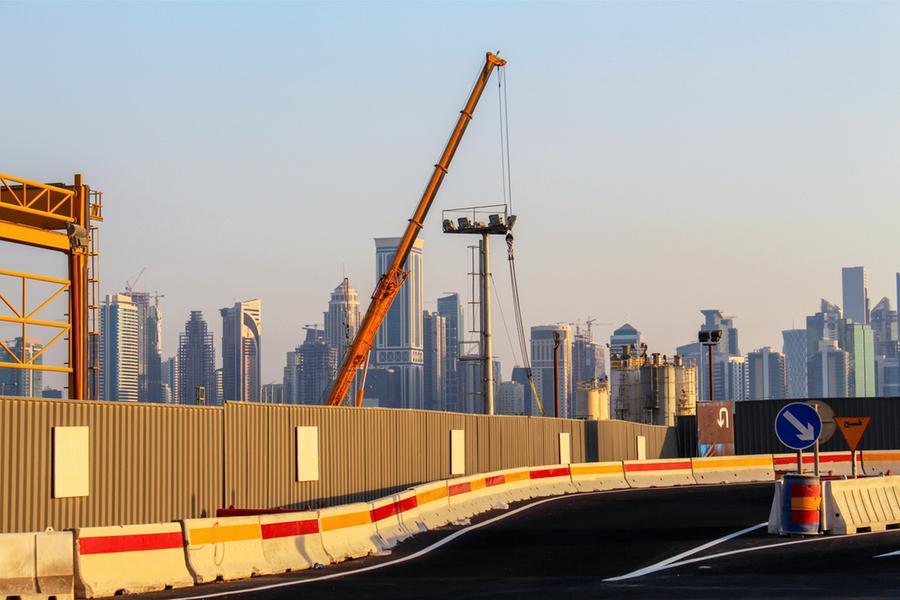Thousands flee southern Gaza as Israel mounts new assault

Thousands of Palestinians are fleeing their homes in Gaza’s Khan Younis as Israeli forces pound the area with bombs and artillery fire after issuing a new evacuation order for the embattled southern city.
The latest strikes on Tuesday killed at least eight people and wounded more than 30 in several neighbourhoods of Khan Younis.
The wave of attacks, just weeks after Israeli tanks left the area, caused panic among residents, many already displaced multiple times and with no clear path to safety.
The Israeli military’s newly declared evacuation zone in Khan Younis encompasses an area where 250,000 people live, said Sam Rose, planning director at the UN Relief and Works Agency for Palestinian Refugees in the Near East (UNRWA).
The order “means yet another day, week, chapter of misery for these hundreds of thousands of people – we expect 250,000 people in areas under the evacuation order,” Rose told Al Jazeera from Nuseirat in central Gaza.
Some had just returned from Rafah, also in the south of the enclave, where they were displaced a few weeks ago.
“And now they just received this evacuation order instructing them to leave immediately … It’s just harrowing, horrific and incredibly difficult to get your head around,” Rose said.
It also includes Gaza’s European Hospital, which serves both Khan Younis and Rafah.
The evacuation order shows Israel’s inability to achieve its goal of eliminating Hamas and its intent to exhaust the population, said Luciano Zaccara, a professor of Gulf politics at Qatar University’s Gulf Studies Center.
“It also proves that Israel wants to win this war by exhausting the people,” he told Al Jazeera, referring to several previous such orders from different locations in the past nine months of war.
“In this way, it creates much more trouble and harm for Palestinians who cannot stay for more than one month or 15 days in one place,” he added.
Some residents fled west towards the al-Mawasi area by the beach, which Israel designated a humanitarian “safe zone” but has attacked. But it is already overcrowded with displaced families.
The idea that there are safe places to move people to, Zaccara said, “is not true because every time there has been a displacement there were also attacks”.
There is no space in al-Mawasi to pitch a tent, there is no water, no infrastructure, no sanitary services, Rose said, with many people forced to spend the night in vehicles or on their donkey carts.

Reporting from Deir el-Balah in central Gaza, Al Jazeera’s Hani Mahmoud said “people have lost hope and the sense of being responsive to these evacuation orders”.
The orders, he said, feel more like a “death sentence for people” as they are “herded from one place to another and only end up being killed”.
‘Advancing to the end’
The intensive push into Khan Younis could prelude the end of Israel’s intensive military operations to rout Hamas from southern Gaza, including Rafah, which Israel’s army estimates it needs four weeks to complete, according to Israel’s Channel 12 broadcaster.
In the next phase of the war, the military plans to transition to less-intense, smaller-scale strikes to keep Hamas at bay, its officials say.
“We are advancing to the end of the phase of eliminating the terrorist army of Hamas, and there will be a continuation to strike its remnants,” Israel’s Prime Minister Benjamin Netanyahu said.
On Tuesday, Gaza’s Ministry of Health said at least 37,925 people have been killed and 87,141 wounded in Israeli attacks on Gaza since October 7.
Related
Ashghal commences roads, infrastructure development in Birkat Al Awamer
Doha, Qatar: The Public Works Authority 'Ashghal' started the implementation of the Roads and Infrastructure Development Project in Birkat Al Awamer. T
India-Qatar trade agreement must be approached with caution: GTRI –…
India should tread cautiously on a potential free trade agreement (FTA
Qatar’s Ashgal likely to award industrial areas infra consultancy contract…
Qatar’s Public Works Authority (Ashghal) is expected to award the design and lead consultancy contract for the North of New Industrial Area Roads and Inf
Qatar’s $2.5bn green bonds fund enhances renewable energy and infrastructure
Doha, Qatar: Qatar continues to boost its investments in sustainable development, demonstrating its competitiveness on the global stage. An official no












